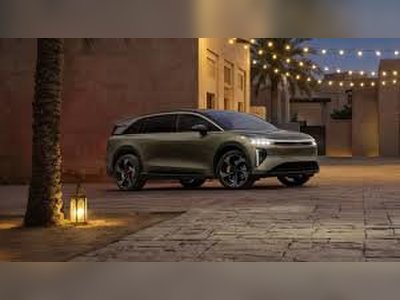
All the ways cars suck, according to the guy who wrote the book about it
It's hard to imagine a time when America, home to history's most famous car manufacturer and the world's first monster truck, almost rejected having cars in their cities over a century ago.
Daniel Knowles, author of "Carmageddon: How Cars Make Life Worse and What To Do About It," chronicled a period in the 1920s, when Americans were incensed by the ever-encroaching presence of cars on their streets — cars that were killing pedestrians and taking over the roads they traversed on by foot.
Demonstrations across the country ensued. One person even wrote to The New York Times, suggesting that pedestrians crossing their street should point their guns at anyone driving in self-defense, Knowles wrote.
Knowles, whose work cited historian Peter Norton's book "Fighting Traffic" for much of this chapter, told Insider that it was one of the most eye-opening facts about cars he learned when researching his new book.
"Cincinnati had a law that almost passed that would have forced every car to have an automatic speed limiter built into it," Knowles told Insider. "And this huge backlash against cars when they first arrived, I actually was really surprised through it. I think I had this idea that like, mobile phones or something, everyone sort of said, 'Oh, it's just a new invention, I guess I'll buy one' and then everybody else bought them."
Now, thanks to lobbying efforts by the automotive industry to move pedestrians off the roads and into cars, Americans view cars much differently, he said. Cars are a necessity and even a symbol of self-reliance and the American dream, Knowles wrote.
Knowles's book, however, argued that those early fighters of car culture may have been onto something.
Cars suck because they blow — chemicals and particulate matter, that is, Knowles wrote. They contribute heavily to the climate crisis. They isolate us from bustling cities, but we cling to the idea that they give us freedom. Now, cars are driving us toward our smog-filled doom, he wrote.
Knowles, who lives in Chicago and does not own a car, also wrote about the unequal distribution of harms by cars that affect people of color. Communities of color are more likely to be exposed to harmful air pollution, regardless of region or income. Car culture destabilized cities like Detroit by helping planners and local lawmakers implement laws that would build freeways in cities to accommodate white, suburban car owners, he added.
Despite this, Knowles wrote, cars persist. Data shows that they are infiltrating every nook and cranny of our limited space on Earth as car ownership grows all around the world. Between 2017 and 2021, the number of registered vehicles in the US rose by nearly 4%. In 2016, research found that globally, the number of cars in the world would double from 1 billion to 2 billion by 2040.
"Even in America today, I think the big challenge is political, and part of that problem is what people on the internet call 'car brain' — you know, the crowd of anti-car people who are big on like Reddit and that sort of thing, but… I think when you become completely dependent on your car, the idea of making driving somewhere something more expensive or more difficult, or in any way restricting, it feels like a sort of an assault."
How to ditch cars completely
The issues that cars present are some that policymakers are already privy to. Their solution is to go all in on electric vehicles.
In April, the Biden administration unveiled an investment plan to make electric vehicles more affordable for lower-income families. It's part of a larger goal to make 50% of vehicle sales electric by 2030 to fight off the worst impacts of climate change.
California has also unveiled a plan to make sure all new cars sold beyond 2035 are zero-emissions vehicles.
But, as many transportation experts have argued before, Knowles told Insider that he believes we need to ditch cars completely for public transport, both for human rights reasons and because of the massive environmental cost of maintaining so many vehicles on the road.
To change America's car culture, Knowles said that he thinks public transportation planners need to start focusing on accommodating people who could use it the most, such as lower-income families burdened by car costs, or women taking care of children.
"A study that the LA Metro had done found was it disproportionately mothers who had a part-time job, and some caring responsibilities, and found that transit just wasn't working for them," Knowles said, describing a 2019 study that found women who used public transport were burdened by worries such as safety and accessibility for them and their children. "And those are the people you need to be targeting."
Knowles also said policies that make it harder to drive and easier to use public transportation will help.
"So many American cities have been passing laws, changing parking requirements and changing zoning so that developers can build apartments and dense housing around public transport stops," Knowles said. "And so I think I'd be more optimistic."











